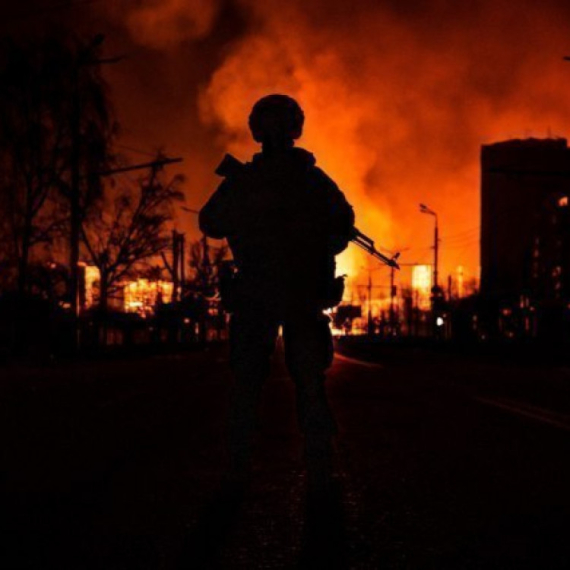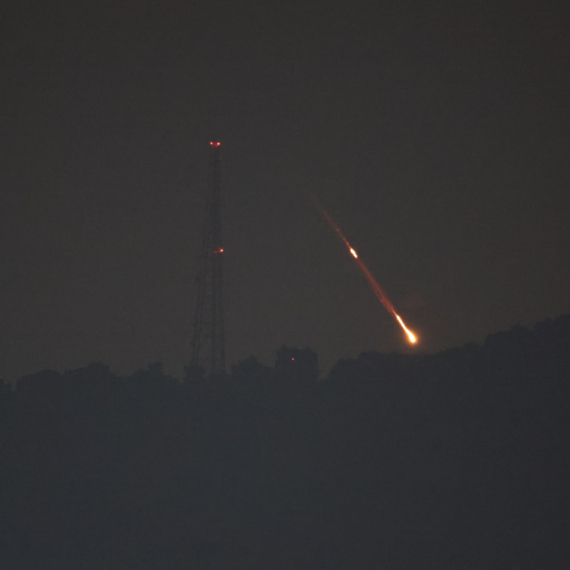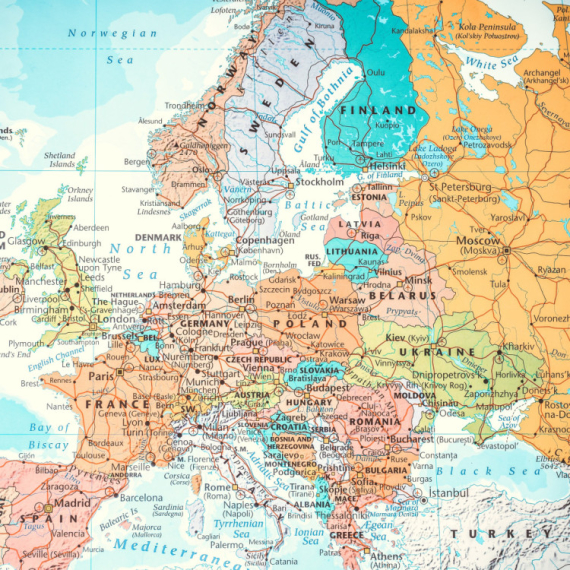Strategic analysis: Serbia's options limited
Stratfor believes that Serbia’s possibilities vis-a-vis Kosovo independence are limited.
Wednesday, 13.02.2008.
10:56

Stratfor believes that Serbia’s possibilities vis-a-vis Kosovo independence are limited. Thus far, according to analyses by the U.S. strategic agency, Serbia is relying considerably on Russian help within the UN Security Council, where the Russians have blocked every action relating to the province, thanks to their right to a veto. Strategic analysis: Serbia's options limited However, the Security Council is powerless to stop an independence declaration, while in Europe, the prevailing view is that this is only a matter of days away. It might not happen, but, Stratfor points out, the Serbs are prepared for the worst. It is bordered by three NATO member states, four NATO candidate states, one that is under a NATO protectorate, two if you count Kosovo, which rules out all military options. Stratfor writes that “there are no good options,” adding that the hasty measure of cutting off or aggravating diplomatic relations would be of no practical use. The agency believes that Serbia only really has two options that will both have repercussions. First of all, it can cut off the two European traffic corridors that pass through Serbia. The first is the Danube, the main maritime route for central and south-east European countries, while the other is the road linking Greece with the heart of Europe. Both pass through Belgrade. The second “punishment” could be a new conflict in the Balkans. In spite of four military defeats in the last 16 years, there are still Serb enclaves within Serbia’s neighboring countries. An “angry” Belgrade could use its army and paramilitary formations to help those enclaves unite with Serbia, though this could simply destroy the existing political order, writes Stratfor. Such “efforts” could “bear fruit” above all in Bosnia-Hercegovina, Kosovo and Montenegro. Both steps could certainly serve as “punishments” for NATO and the EU, but would undoubtedly do more harm than good. Not only would they “kill” the Serbian economy, but cutting off the traffic corridor would most affect Bulgaria and Greece, countries that have significant cultural links with Serbia and intend to defend Serbia’s position within NATO and the EU. Stirring up unrest in Bosnia could reignite Serbian hopes, but would provoke a NATO reaction, who would react to protect their own forces, and the last thing Serbia needs now is another war with NATO, concludes Stratfor. The options with less drastic consequences are however much less dramatic. They are based on efforts by the northern Kosovo Serbs to reintegrate with Serbia. The only thing the Albanians could do to stop this would be to instigate a conflict, though it is unlikely that NATO would wish to get involved in something like this. Moreover, one can expect Serbia to cut all ties with an independent Kosovo, thus forcing the province to import everything from food to electricity from different sources. This would turn Kosovo, which is already a “territory that does not function,” into an “economic disaster” and would force NATO and the EU in the best case to instigate a long-term humanitarian aid program, predicts the U.S. agency.
Strategic analysis: Serbia's options limited
However, the Security Council is powerless to stop an independence declaration, while in Europe, the prevailing view is that this is only a matter of days away.It might not happen, but, Stratfor points out, the Serbs are prepared for the worst.
It is bordered by three NATO member states, four NATO candidate states, one that is under a NATO protectorate, two if you count Kosovo, which rules out all military options.
Stratfor writes that “there are no good options,” adding that the hasty measure of cutting off or aggravating diplomatic relations would be of no practical use.
The agency believes that Serbia only really has two options that will both have repercussions.
First of all, it can cut off the two European traffic corridors that pass through Serbia. The first is the Danube, the main maritime route for central and south-east European countries, while the other is the road linking Greece with the heart of Europe. Both pass through Belgrade.
The second “punishment” could be a new conflict in the Balkans. In spite of four military defeats in the last 16 years, there are still Serb enclaves within Serbia’s neighboring countries.
An “angry” Belgrade could use its army and paramilitary formations to help those enclaves unite with Serbia, though this could simply destroy the existing political order, writes Stratfor.
Such “efforts” could “bear fruit” above all in Bosnia-Hercegovina, Kosovo and Montenegro.
Both steps could certainly serve as “punishments” for NATO and the EU, but would undoubtedly do more harm than good.
Not only would they “kill” the Serbian economy, but cutting off the traffic corridor would most affect Bulgaria and Greece, countries that have significant cultural links with Serbia and intend to defend Serbia’s position within NATO and the EU.
Stirring up unrest in Bosnia could reignite Serbian hopes, but would provoke a NATO reaction, who would react to protect their own forces, and the last thing Serbia needs now is another war with NATO, concludes Stratfor.
The options with less drastic consequences are however much less dramatic. They are based on efforts by the northern Kosovo Serbs to reintegrate with Serbia.
The only thing the Albanians could do to stop this would be to instigate a conflict, though it is unlikely that NATO would wish to get involved in something like this.
Moreover, one can expect Serbia to cut all ties with an independent Kosovo, thus forcing the province to import everything from food to electricity from different sources.
This would turn Kosovo, which is already a “territory that does not function,” into an “economic disaster” and would force NATO and the EU in the best case to instigate a long-term humanitarian aid program, predicts the U.S. agency.







































Komentari 10
Pogledaj komentare